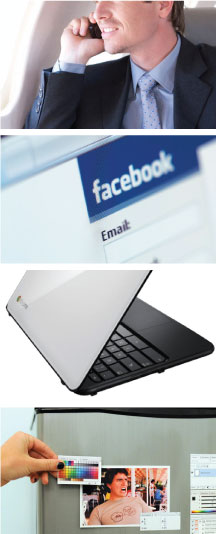Around the Office is a weekly group blog that shows what the OnlineFriendly.biz team and Kobayashi Online have found interesting, funny, poignant, or otherwise notable over the past week.
 While he’s still among the site’s 687 million users, Daveed has been thinking about the millions of Facebook users logging off for good, especially in Canada and the US, and among younger users. It’s too soon to tell if the social network is on its way to becoming the next MySpace, but a company spokesperson has defended the company, saying that Facebook is “very pleased” with its growth, and its user engagement, given that more than half its active users log on to the site daily. We’ll take the death knells more seriously if and when Daveed leaves Facebook.
While he’s still among the site’s 687 million users, Daveed has been thinking about the millions of Facebook users logging off for good, especially in Canada and the US, and among younger users. It’s too soon to tell if the social network is on its way to becoming the next MySpace, but a company spokesperson has defended the company, saying that Facebook is “very pleased” with its growth, and its user engagement, given that more than half its active users log on to the site daily. We’ll take the death knells more seriously if and when Daveed leaves Facebook.
Brent found out that cell phone use on a plane is actually a problem. But he’s wondering why the enforcement is really mild. A plane, like a movie theatre, only seems to enforce the ban if there’s a complaint. Since it’s not treated as a real issue, it’s not surprising that people don’t believe it is.
Roberto was interested in the newly launched Google Chromebook, basically a barebones laptop that runs a Web browser. He was reminded of when Apple started introducing many consumers to touch screens with the release of the iPhone four years ago. As touch screens have since become staples of consumer mobile devices, Google Chromebook could actually do the same for cloud computing.
As opposed to traditional PCs that rely primarily on their own resources, Chromebook users rely on the cloud computing model, and its on-demand access to a shared pool of online computing resources. For those who want an overview of the current state of cloud computing, he suggests a great infographic of cloud computing. Roberto reckons that cloud computing will become more accepted by consumers, but not just yet.
Never far from her Adobe toolbars at any given time, Eva discovered a set of magnets that make any fridge into a Photoshop workspace. These fridge magnets from Photojojo hilariously recreate the familiar toolbars and prompts from Photoshop.